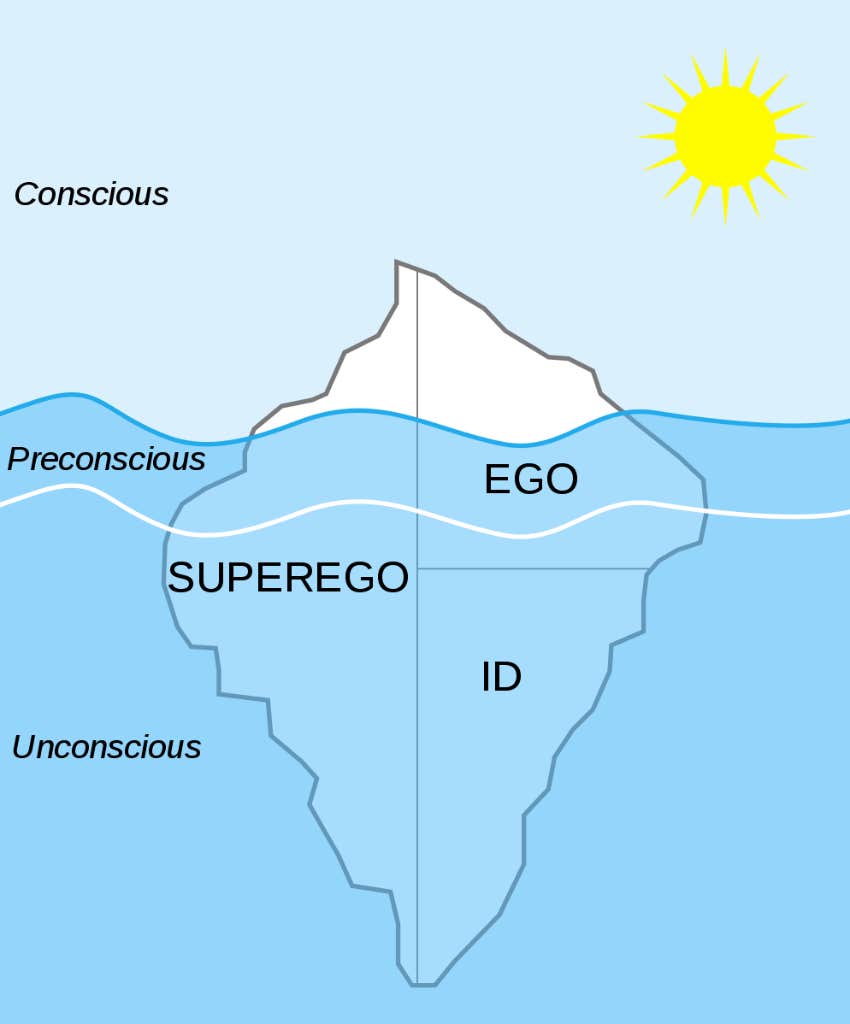The Psychological Technique People Who Have Great Relationships Use On A Daily Basis
Not everyone has this skill, but it can greatly benefit your relationships.
 Dekazigzag / Shutterstock
Dekazigzag / Shutterstock Let’s admit it: We tend to blame our partners when our relationships go wrong. It’s sometimes hard to look at ourselves and say that we were culpable.
But what if I told you that there is a psychological concept that helps determine if you are "good" at being in a healthy relationship — and that this concept has more to do with the way you relate to yourself than to others?
There's a psychological technique people who have great relationships use on a daily basis.
It's called "ego effectiveness" and it appears to be hugely influential in determining how successful our relationships can be. But what is ego effectiveness and how does it determine how good you are at relationships?
A study reported in the Journal of Personality explains that "There are components of self that recognize effective courses of action and there are components of self that enact behaviors. The objective of the research was to examine alignment between these different components of self."
This study determined that "both participants and partners reported greater satisfaction in their relationships with participants scoring higher in ego effectiveness."
To put it more casually, ego effectiveness is a psychological concept that refers to a condition when your behavior is congruent with your ideal view of yourself. Essentially, it's when you're authentic and true to your words.
With someone whose ego effectiveness is humming along well, what you see is what you get, and both partners in relationships with those people reported being very satisfied in their relationships.
While the study is illuminating, it makes sense that being able to have healthy relationships is based on having a healthy sense of self.
There's no need to cover your actions or hide your behavior when you're aligned with your ideal self.
When your behavior is not aligned with your ideal self, you lack ego effectiveness.
A lack of ego effectiveness is when you can’t face the truth about your actions if it's not aligned with how you see yourself or your ideal self. This is when a person might lie, cover up the truth, or hide to protect themselves from feeling bad about themselves.
When your behavior is not aligned with your ideal self, you aren't bringing your best self — maybe not even your true self — into relationships. When your behavior is not aligned with how you want to see yourself, it’s easy to distort reality so it looks like you’re a good person.
For instance, a narcissist might use gaslighting to distort reality so that they look good and don’t have to face their actions if they don’t want to admit they did something wrong. In this way, they maintain the positive image they have of themselves.
In other words, their view of themselves is not aligned with their actual behavior. The way they see themselves doesn’t fit with who they are. Whereas, someone with ego effectiveness sees themselves realistically, acts according to their ideal self, and has no need to manipulate others.
In order to understand the function of the ego, you need to look at Freud's structure of the psyche. The structure of personality consists of the id, superego and ego.
The id is driven by both aggressive and pleasure-seeking impulses that seek to gain instant gratification and avoid pain. The superego tries to live by social expectations, often driven by feelings of guilt, shame, or judgment. The ego mediates between the id and superego and lives according to the reality principle (consciousness).
 Photo: historicair, Public domain, via Wikimedia Commons
Photo: historicair, Public domain, via Wikimedia Commons
Having ego effectiveness is when you can see things clearly and master control over your behavior so you can respond rather than react.
If you have a weak ego, you might use defenses to deny something you don’t want to face within yourself, so you find a way to deny reality or distort the truth in some way so you don’t have to face this painful truth.
For instance, when your partner calls out your behavior and you can’t tolerate the fact that you did something wrong, you find a way to distort the truth so it does not seem that bad. In this way, your actions don't live up to the way you want to see yourself.
Having a healthy ego means you don’t react to your impulsive or aggressive desires, but acknowledge the reality of how you feel when you say how you feel.
How does ego effectiveness influence how well you maintain healthy relationships?
Having a healthy relationship is when you’re able to express your true feelings that underpin your real self. This way, you respond according to your ideal ego and not react defensively. Remember: Possessing ego effectiveness is when your behavior is aligned with your real self.
Research conducted by Michael D Robinson, Roberta L. Irvin, and Michelle R. Persich (2022) showed that heightened ego effectiveness relates to several positive relationship outcomes, while lower levels of ego effectiveness are linked to several negative consequences.
Overall, partners felt more satisfied in relationships with those with higher ego effectiveness. It found that partners felt more committed in relationships, showing higher levels of intimacy, trust, and love.
Partners reported that ego effective participants were more accessible, responsive, and engaged in the relationship. These findings showed that ego effectiveness was linked to relationship success.
The ego effective individuals were less likely to engage in denial or disengagement and less likely to engage in manipulating partners. They were better able to cope with relationship problems.
There are some key indicators that you're living in 'reality ego', meaning not reacting defensively or impulsively, which leads to a successful romantic relationship.
1. Instead of reacting, you can register your feelings and express them.
2. Instead of sweeping things under the carpet or ignoring issues, you can address them along the way.
3. Instead of acting according to your own needs and self-interests, you can consider others in a relationship.
4. You don’t give into temptation or impulsive desires, but think carefully about the consequences and weigh up a more appropriate response to handle the situation.
5. Instead of showing anger that masks underlying feelings, you notice uncomfortable feelings like jealousy or insecurity and seek to understand where they come from.
6. You have impulse control and talk things through.
7. You can sit with anger and tolerate frustrating feelings rather than react in the heat of the moment.
8. Instead of twisting the truth, you’re able to take accountability for your actions and own your behavior.
When your ego is healthy, you’re not scared of a punitive superego. You can tone down your inner critic. You have compassion for yourself and others, so you’re able to calm down from conflict and not judge yourself or others harshly.
When you live in accordance with your real self, you can foster a deeper connection, rather than react in defensive ways.
Having a healthy ego allows you to live according to your ideal self when your actions are aligned with who you are.
You can live according to your inner truth and manage the unwanted impulses and destructive urges, so you have conscious control over yourself and the way you respond to others. And that, in turn, can positively affect your romantic relationships.
Nancy Carbone is an author, relationship therapist, and psychodynamic therapist. She specializes in the treatment of personality disorders and relational trauma, and is accredited as a mental health social worker.

